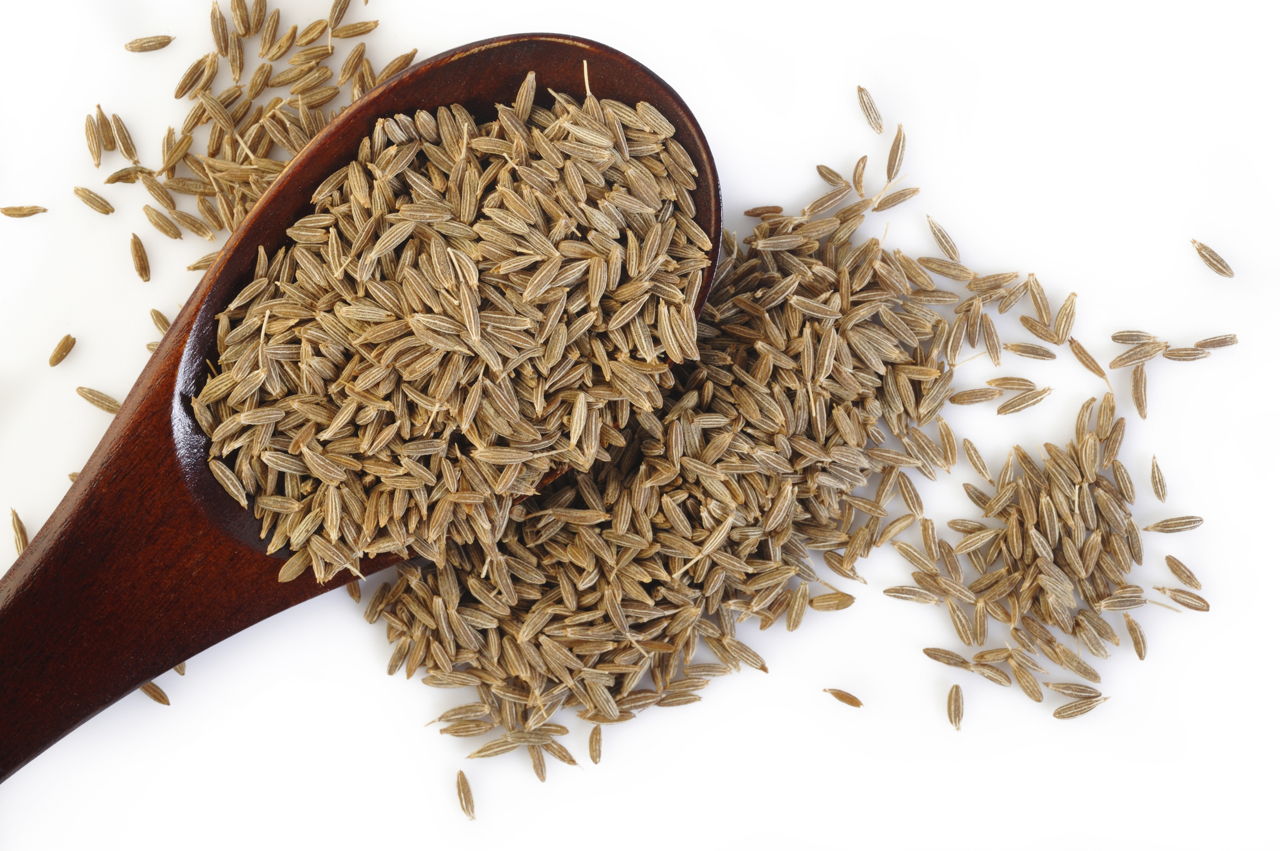Cumin seeds are produced by a flowering plant in the family Apiaceae of the species Cuminum cyminum. Powdered cumin is used as an aromatic spice in various cuisines.

Nutritional value
Cumin is a good source of iron, manganese, magnesium, calcium, phosphorus, sodium, copper, zinc, potassium, and contains vitamins B1, B2, B6, A, C, E, and K.
Sodium and magnesium in cumin highly affect function of the digestive system in a way that they heal digestion disorders such as tympanites. Moreover, cumin extract activate salivary glands of the mouth which facilitate primary digestion of food. It also stimulates glands secreting enzymes and bile acid and leads to complete digestion of food in the stomach and intestine.
Cumin is a great source of iron (a mineral) which, by increasing the level of hemoglobin, improves blood circulation and oxygen delivery to the tissues.
Since there are many key nutrients in cumin including iron, essential oils, vitamins A and C, they enhance the immune system of the body. Especially, vitamin C in cumin, which is a powerful antioxidant, stimulates white blood cells to neutralize free radicals; thereby preventing from progression of many diseases including cardiovascular diseases and cancer. Due to antiseptic and antifungal properties of cumin, its regular use in the cuisine helps protect the skin from fungal and microbial infection. It is also effective in reducing the symptoms of premature ageing such as wrinkles and spots because vitamin E in cumin functions as an antioxidant.
Cumin is both a stimulant and a tranquilizer. Some constituents of cumin naturally have tranquilizing effects which reduce stress and anxiety.
Eating cumin significantly decreases blood glucose and prevents from diabetes. In addition, calcium in cumin increases bone density and delays osteoporosis.
Acne is unfavorable for most people and can be controlled to a great extent by regular use of cumin.
Being anticancer and antivirus, fighting body infection, alleviating pain, treating diarrhea, increasing breast milk in mothers, reducing weight, and reducing opioid dependence due to caffeine compounds as well as enhancing the memory are among other benefits of cumin.
Uses of cumin
In cooking: in the form of spice powder, to cook types of soup and dishes, cookies and desserts
The cumin essence and oil are used as aroma in perfumes and cosmetics such as crèmes, perfumes and lotions.
In pharmaceutics: to produce medications for curing diarrhea, intestine and muscles inflation and spasm, and tympanites
Side effects:
Overuse of cumin may cause complications such as hypoglycemia; therefore, patients with diabetes should be cautious of the amount of cumin they use. Besides, too much use of cumin may decrease the speed of blood coagulation; thus, people with blood disorders should avoid using it.
Overuse of cumin could also cause heartburn and kidney and liver disorders.
Productes